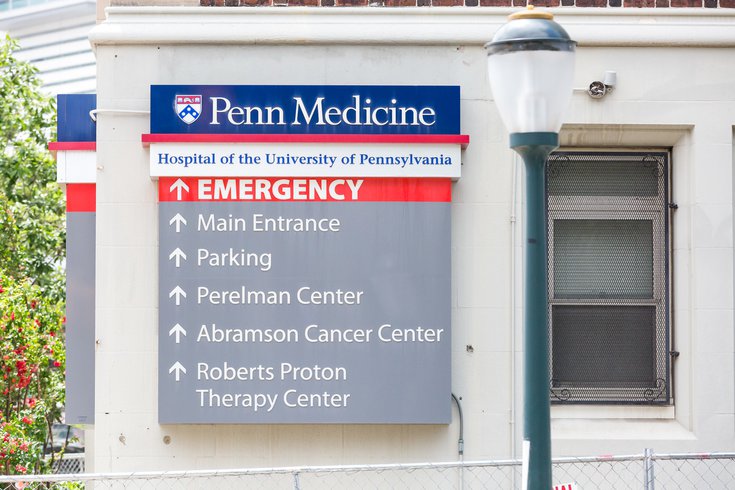
February 20, 2023
 Thom Carroll/For PhillyVoice
Thom Carroll/For PhillyVoice
Hundreds of resident physicians and fellows at Penn Medicine have asked the Philadelphia-based hospital system to recognize their representation under the Committee of Interns and Residents, a branch of the Service Employees International Union.
Hundreds of Penn Medicine resident physicians and fellows have sought to unionize in an effort to secure higher pay and better health care and family leave benefits.
The residents have asked that the University of Pennsylvania Health System to recognize their representation under the Committee of Interns and Residents, the largest union for residents and fellows in the United States.
Penn Medicine employs more than 1,400 residents and fellows; a supermajority of them have joined CIR, a branch of the Service Employees International Union. In doing so, the residents have joined a growing movement that began in the aftermath of the COVID-19 pandemic. The union, which represents more than 24,000 residents and fellows nationwide, said Penn Medicine's residents are the eighth group to join the union in the last 11 months.
If successful, the union would be first of its kind in Pennsylvania. The state does not have any unionized residency programs. Residents said that their organizing efforts began at the beginning of the pandemic, when house staff were told that they would not receive a regular cost-of-living increase. They spent several months working with hospital management to improve working conditions, but ultimately decided to unionize.
"We chose to train at an academically rigorous and highly-respected institution, but we expect more from Penn than just a fancy name," said Dr. Chantal Tape, a third-year resident in Family Medicine at Penn. "We are human beings first and foremost. If we're sacrificing our physical and mental health, our financial stability, and our personal relationships in order to provide care, that means our health care system is failing."
The residents said they often are expected to pick up extra shifts with no additional pay and that they routinely work 80 hours per week, a number that has become standard at teaching hospitals since 2003. In addition, cost cuts at Penn – there were no raises given in 2021 and parking benefits were eliminated in 2022 – helped grow support for organizing, the Inquirer reported.
Though workers want to negotiate terms of their contracts, like medical benefits and family leave policies, Dr. Jackson Steinkamp, a resident in Internal Medicine, said residents also are looking to have a "seat at the table" and help make decisions about patient care.
A Penn Medicine spokesperson said the University City-based hospital system is proud of its efforts to "continually improve resident life and wellness, including during the unprecedented clinical and financial pressures brought by the COVID-19 global public health emergency.
"We believe that our trainees will best be served by working directly with UPHS administration through our Graduate Medical Education Committee structure, which will continue its commitment to a collaborative, flexible approach which ensures strong human resources support for house staff."
First-year residents at Penn Medicine can expect to earn $69,869 per year beginning in July, when the program's pay scale is adjusted. In their ninth year of post-graduate work, Penn Medicine residents will earn $94,404. In addition, residents are offered health benefits and malpractice insurance, as well as up to four weeks of paid vacation time and 12 weeks of family leave.
Medical students often enter the job market with about $200,000 in student loan debt, which the American Medical Association said may "loom large" as doctors leave training and enter practice.
The residents also have cited unionizing as a way to help advance medical equity in West Philadelphia communities and elsewhere in the city, which faces the highest disease burden in the state, according to 2019 report from Drexel University's Urban Health Collaborative and the Department of Public Health.
"We serve one of Philadelphia's most vulnerable patient populations, who already face huge obstacles to accessing care," said Dr. Madison Sharp, a third-year OB/GYN resident at Penn. "We are deeply committed to our patients, many of whom have complex medical conditions. We do these patients a disservice when we are not provided with what we need to be the best doctors we can possibly be."
Residents across the country have turned to unionization to help them improve working conditions and win better pay, in hopes of alleviating stress and burnout, the Wall Street Journal reported. However, a 2021 research analysis found that unionized residency programs are not associated with improved well-being, higher job satistfaction or a lower suicide risk.